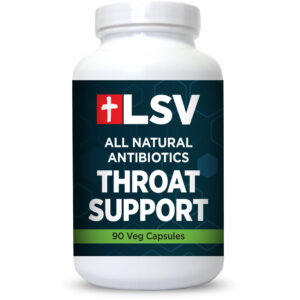Our Company
LSV
SINCE 1992
Founded in 1992, in Winter Park, Florida – LSV Vitamins has been the leader in All Natural Antibiotic supplement sales for over 30 years in the United States.

Antibiotics, the wonder drugs that revolutionized medicine years ago, are facing a growing crisis: they’re becoming less effective. Studies worldwide show a rise in antibiotic resistance, a phenomenon where bacteria develop mechanisms to evade these life-saving medications.
This resistance is attributed to two main factors:
The consequences of antibiotic resistance are dire. Common infections like pneumonia, urinary tract infections, and even minor skin infections could become difficult, or even impossible, to treat. This could lead to:
Here’s what the studies say:
The message is clear: we are on the verge of a post-antibiotic era. But there’s still hope. Researchers are exploring alternative strategies like:
This fight requires a multi-pronged approach. Healthcare providers need to prescribe antibiotics judiciously, and public awareness campaigns can promote responsible antibiotic use. Additionally, continued research and investment are crucial to ensure we don’t lose these life-saving medications entirely.
Boston University states: As bacteria evolve, many have become resistant to antibiotics. An estimated 1.27 million people died worldwide in 2019 from infections caused by drug-resistant bacteria, according to a landmark study published in The Lancet. It’s an estimated death toll that has nearly doubled in the past five years. See Full Article/Study Here
By working together, we can ensure antibiotics remain a valuable tool in fighting infections and saving lives.
By no means are we at LSV Vitamins saying do not take what your doctor prescribes, we are just saying that we have an alternative for those who cannot take Antibiotics, afraid one of the many side effects, or simply want to try an all-natural alternative. We have a large number of people (over 100,000) who take and have taken this at the first sign of a problem, and it works well. As always, consult your doctor.
LS Vitamins – Since 1992
See All of our effective All Natural Products Here
All Natural Antibiotics Cold & Flu
All Natural Antibiotics Sinus Support
All Natural Antibiotics Teen Support
All Natural Antibiotics Tooth & Gum
All Natural Antibiotics Bronchial & Lung Support
All Natural Antibiotics Throat Support
Below are a number of statistics that help describe how antibiotics are currently being prescribed in outpatient settings in the United States and how these practices are contributing to the larger issue of antimicrobial resistance.
The possibility of antibiotic side effects can be frightening, but it is important to remember that their proper use has saved countless lives. Those using antibiotics should report any possible negative reactions to their doctor immediately. In some cases, doctors will have their patients continue using a specific antibiotic if the side effects are mild; in others, the doctor will switch the patient to another drug.
For Over 30 Years, we have 3rd Party Tested each and every nutrient that go into all of our products: Purity & Effectiveness is how are product continually works for Tens of Thousands of our Customers.
*Disclaimer: None of the above statements have been evaluated by the FDA. These products are not intended to diagnose, treat, cure or prevent any disease. As always, consult your physician before taking any supplements. LSV. Individual results may vary.
 Throat Support - Natures Antibiotics
Throat Support - Natures Antibiotics
 Bronchial & Lung Support - Natures Antibiotics
Bronchial & Lung Support - Natures Antibiotics
LSV
SINCE 1992
Founded in 1992, in Winter Park, Florida – LSV Vitamins has been the leader in All Natural Antibiotic supplement sales for over 30 years in the United States.